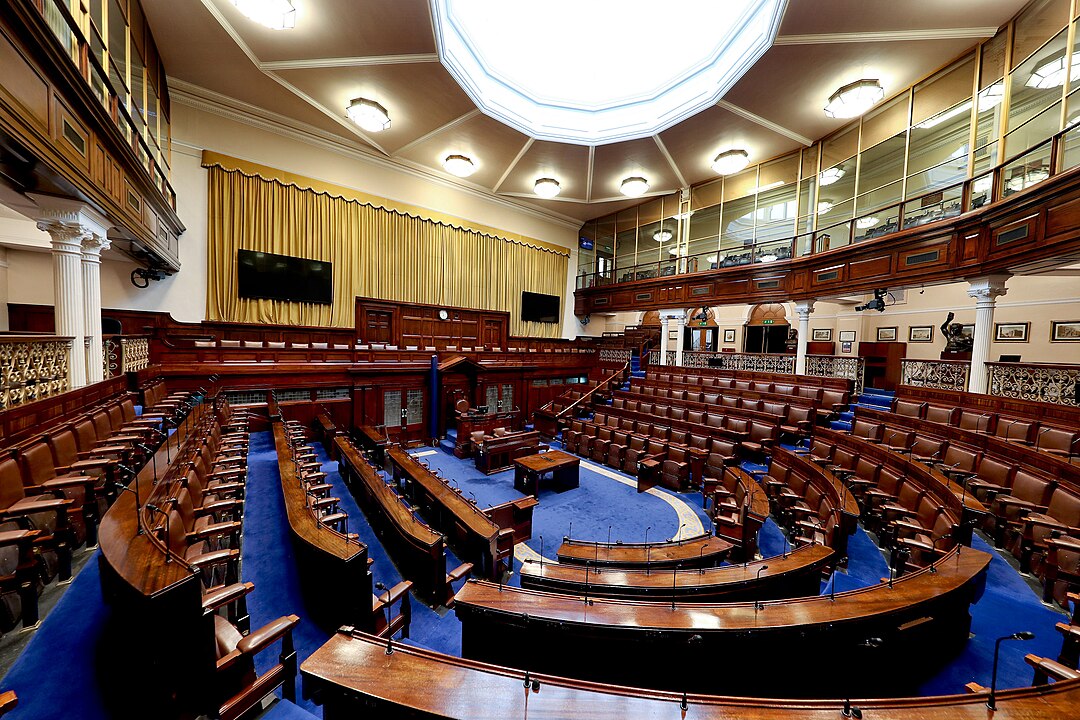Secondary legislation

Circumventing the Irish parliament
Andrew McGrath
With the European Communities Act 1972,
the Oireachtas passed into law the measure that Treaties of the
European Union, and obligations on member states accruing from those
treaties, would have the same status and effect as Acts of the
Oireachtas. But the legal issues surrounding enforcement of EU measures,
for instance those to do with fisheries policy, are not so
straightforward.
For many years, EU regulations have
been used by the Irish State as a pretext for refusing to replace aged
fishing vessels, and closing down the industry, even while the fleets of
larger countries, such as Spain, are allowed unfettered access to Irish
waters. Because Ireland has practically no navy to speak of, effective
policing of these fleets is impossible. The miniscule resources at the
disposal of the Naval Service have been devoted mainly to pursuing Irish
fishermen involved in relatively minor breaches of EU regulations
concerning net sizes and fish stocks, while the larger nations are
mostly immune from repercussions, despite correspondingly greater
breaches. In this context, enforcement of regulations is almost
meaningless, except as a means to crack down on fishermen, and make the
prospect of continuing in the industry ever more unlikely.
That such an interpretation is not an
exaggeration can be seen in the means of enforcement: the Irish State
has been using a phenomenon known as secondary legislation to
criminalise actions by Irish citizens that are in breach of EU
provisions. Secondary legislation, also known by the term "Statutory
Instrument", is a means whereby a minister can pass a measure into law
without placing it before the Oireachtas for approval.
The British Parliament enabled the use
of the S.I. in a 1946 Act, and it forms a standard part of the
administrative structure of the UK. The picture is not so clear-cut in
the case of Ireland: an Act passed by the Oireachtas in 1947 provides
for the official publication of S.I.s, but it seems that there has
never been an attempt to establish the S.I. on a sound legal footing in
Ireland. According to Article 15.2 of the Constitution, the only body
capable of making law is the Oireachtas. In addition, in order to
legalise the making of an S.I., the Oireachtas would have to mandate
the creation of a subordinate law-making body for that specific purpose.
But the Oireachtas has never done this. So the practice whereby
Ministers have used S.I.s to give effect to EU law, without specific
enactment of that law by the Oireachtas, is clearly
unconstitutional.
The Supreme Court cases Browne v. Attorney General (2003), and Kennedy v. Attorney General (2005), established that the Minister for the Marine and Natural Resources had acted ultra vires, that is, had exceeded his legal authority, in subjecting the named individuals to criminal prosecution for breaching EU fishing regulations; regulations that had been given effect through S.I. The Government is currently trying to close this loophole with the European Communities Bill 2006.
The Supreme Court cases Browne v.
Attorney General (2003), and Kennedy v. Attorney General (2005),
established that the Minister for the Marine and Natural Resources had
acted ultra vires, that is, had exceeded his legal authority, in
subjecting the named individuals to criminal prosecution for breaching
EU fishing regulations; regulations that had been given effect through
S.I. The Government is currently trying to close this loophole with the
European Communities Bill 2006. But the constitutional point stands:
the State is acting illegally in its consistent policy of subjecting
fishermen and farmers to criminal prosecution for failing to adhere to
the letter of EU regulations. The majority of these regulations have
been enacted through S.I.. But if the State has no legal right to
prosecute individuals for acting in breach of these regulations, the
logical conclusion is that these regulations cannot be enforced; in
other words, they do not have the status of law under the Constitution.
In order to become law, they would have to be enacted, through a
specific act of legislation, by the Oireachtas. Then, of course, a
further issue would arise, that of the constitutional status of these EU
provisions.
With reference to such issues, the urgency with which Irish politicians have backed the revival of the "EU Constitution" becomes comprehensible. The intention is at all costs to abolish Irish sovereignty, and a big step in this direction would be the abolition of the Irish Constitution.
© The Tara Foundation, 2007
